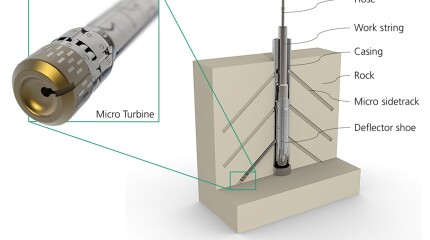-
A field test study examines micro turbine drilling in a clay formation that allows steel casing and formation to be drilled in a single operation.
-
The discovery in the Kutei Basin offshore Indonesia is being considered for fast-track development.
-
The Gorgon Phase 3 project aims to counter declining reservoir pressure to sustain gas supplies to Western Australia’s domestic market and support LNG exports to Asia.
-
Our drilling process is punctuated with discontinuous events that can disrupt the operational flow of the perfect well. Three papers have been selected to provide insights into some of these nonstationary processes that cause bit runs to fall short of perfection.
-
The capability of modern wellbore surveying to increase asset value through improved subsurface modeling and completion-equipment placement is being overlooked by managers of operating companies.
-
This paper presents a study of trapped-torque incidents during drillpipe connection, highlighting contributing factors and root causes and proposing prevention and mitigation measures for these transient events.
-
In this study, a method was developed to analyze the effects of drilling through transitions on bit-cutting structures and construct an ideal drilling strategy using a detailed drilling model.
-
This paper describes a machine-learning approach to accurately flag abnormal pressure losses and identify their root causes.
-
Westwood Energy analysts suggest operators have an opportunity to secure rigs at lower rates for their 2027 drilling programs.
-
The Essington-1 well is the first discovery in the Otway since 2021.









